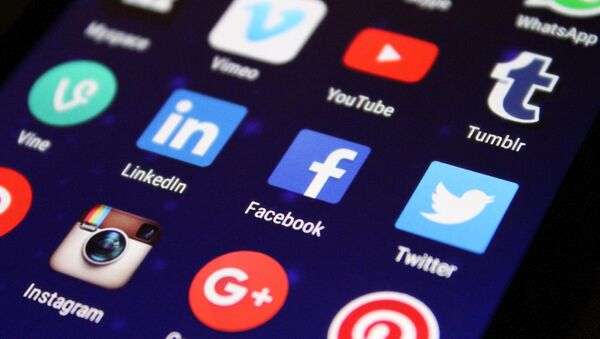Michelle Gore, 21, of Bedfordshire in the UK, teamed up with the charity Fixers to raise awareness about the damage technology addiction can wreak on your health, after she was diagnosed with Tietze disease in January last year, the Telegraph reported.
Her passion progressed and soon she realized she'd become so obsessed that she could spend up to 23 hours a day online, just surfing the Internet and posting selfies.
Fearing she might miss out on updates from various apps like Snapchat, Instagram or WhatsApp, Gore left her phone on all night long and even bought a special waterproof case to stay connected while in the shower. Before going to bed, she always played Xbox or watched Netflix.
Michelle said she realized she needed help when one day she woke up tangled up in cables from different devices.
"I had the laptop wire round my leg, my headphones around my neck, my mobile under my pillow, my tablet charging on my bedside table and my Xbox and PlayStation controls at the foot of the bed," Gore said, as cited by the Telegraph. "I thought, ‘this isn't normal.'"
It was time to go cold turkey from all the gadgets, Gore said, but saying "no" was by no means easy.
"It was my worst nightmare. Since I spent most of my time online, it suddenly felt like life had stopped," Gore said.
Consultant adolescent psychiatrist and technology addiction lead at the Nightingale Clinic Dr. Richard Graham explained that the problem with technology addiction is that those suffering from it can't simply say they will not use the devices ever again.
"We need technology in our lives and it brings a host of benefits," he explained. "It can, however, drain us of our time as we spend more and more time online. This can become a compulsion to constantly be plugged in so that we don't ever risk feeling that we are missing out, or stepping off a ladder."
Dr. Graham concluded that the only option is to learn to establish a healthy relationship with technology, which is the crux of the treatment he prescribes to patients.




